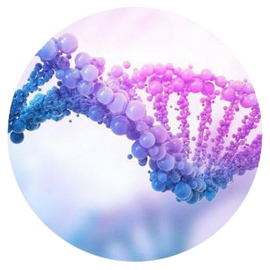Exosomes have emerged as potential treatments for central nervous system (CNS) disorders, thanks to cutting-edge research. This development is particularly significant in a field where exosome effectiveness has become paramount.
In the last decade, researchers have revealed the crucial role of extracellular vesicles (EVs), such as exosomes, in facilitating both short-range and long-range communication among brain cells and beyond. These vesicles serve as carriers for bioactive molecules, encompassing proteins, nucleic acids, lipids, and even functional miRNAs.
Exosome diagnostics are emerging as valuable tools for identifying and characterizing CNS diseases. Their role in intercellular communication and ability to carry distinctive genetic material can thus be seen as biomarkers for identifying and treating a variety of disorders.
Some exosome surface markers exhibit disease specificity, making them potential biomarkers for disease diagnosis. Diseases involved in the discovery and research of exosomes as diagnostic biomarkers include but are not limited to:
- Tumor Diagnosis-Applied Exosomes
- Pregnancy Disorders Diagnosis-Applied Exosomes
- Cardiovascular Diseases Diagnosis-Applied Exosomes
Exosomes in the brain can be released by sources such as bone marrow (BM)-derived stem cells, neural stem cells (NSCs), and mesenchymal stem cells (MSCs), affecting numerous brain disorders such as stroke, Alzheimer's disease (AD), Parkinson's disease (PD), among others.
Beyond diagnostics, recent research has unveiled the potential of exosomes in the treatment of CNS diseases, offering new hope for patients with conditions like Alzheimer's disease, Parkinson's disease, and traumatic brain injury (TBI). One significant breakthrough is the discovery that exosomes derived from stem cells have neuroprotective properties, promoting neurogenesis and modulating inflammation in the CNS.
Exosome in Alzheimer's Disease
Exosomes produced by mesenchymal stem cells (MSCs) have been discovered to have neuroprotective qualities. In clinical settings, these exosomes can improve cognitive performance and slow the buildup of amyloid- plaques, a hallmark pathology of Alzheimer's disease. According to this study, exosome-based therapeutics might be a viable option for halting or even reversing the progression of Alzheimer's disease.
Exosome in Parkinson
By delivering therapeutic compounds and encouraging the survival of dopaminergic neurons, exosomes have proven they have the ability to reduce the symptoms of Parkinson's disease. Exosomes from various sources, such as MSCs and neural stem cells, have been shown to boost neuroprotective effects and reduce neuroinflammation in Parkinson's disease models, according to recent research.
Exosome in Traumatic Brain Injury
Long-term neurological impairments are frequently a result of traumatic brain injuries (TBI). Exosomes made from MSCs have demonstrated the capacity to reduce neuroinflammation and advance tissue regeneration in TBI models. These results imply that exosome-based therapeutic approaches may present fresh opportunities for the management and rehabilitation of TBI.
In summary, exosomes are emerging as a promising avenue for both diagnosis and treatment in the realm of CNS diseases. Their potential to serve as diagnostic biomarkers and therapeutic agents holds significant promise for improving the lives of patients with various neurological conditions.
Enjoy being online again!
Welcome to the community of good people who base their values on evidence and appreciate civil discourse - the social network you will enjoy.Create your free account
Enjoy being online again!
Welcome to the community of good people who base their values on evidence and appreciate civil discourse - the social network you will enjoy.Create your free account








